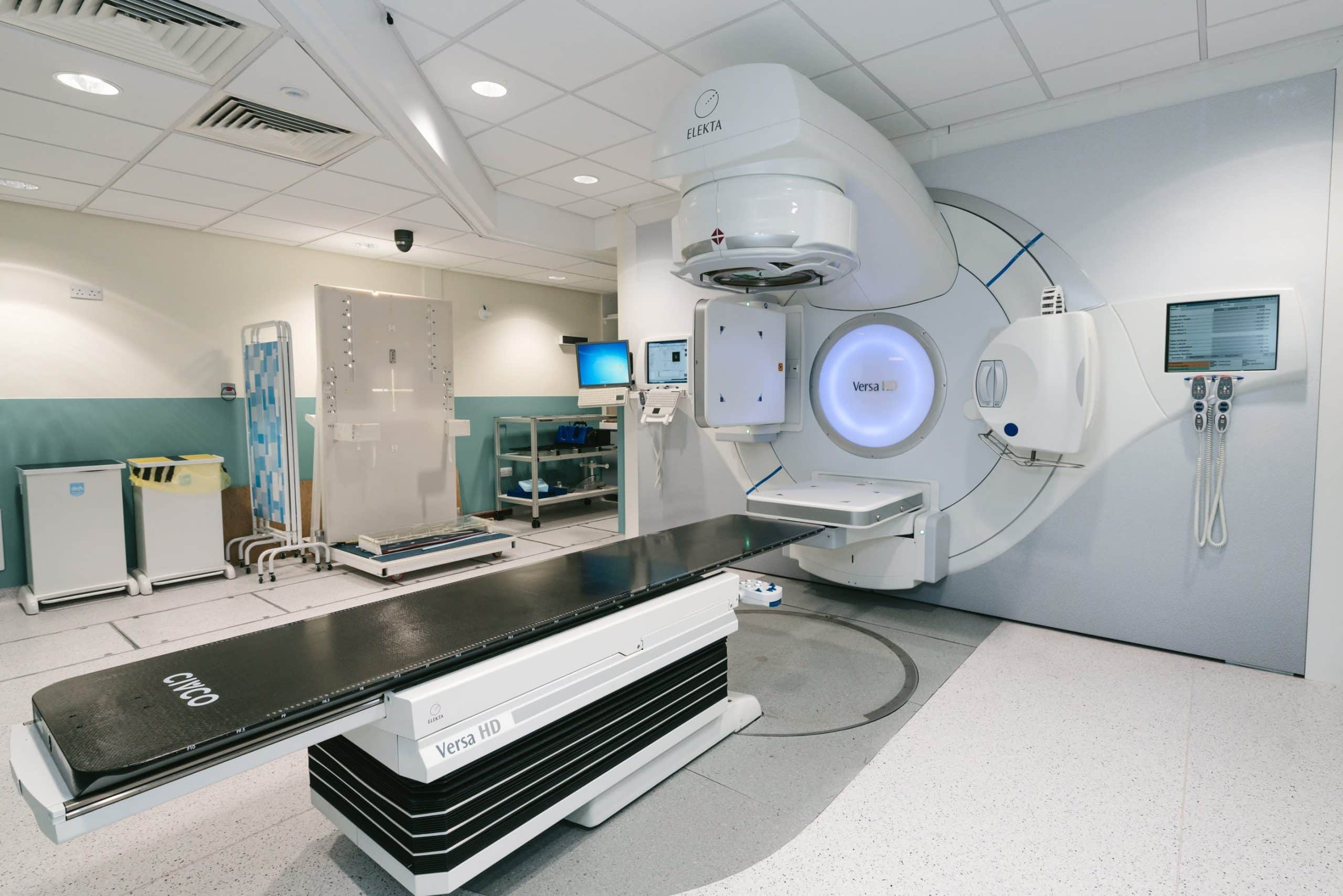Introduction
The future of healthcare is witnessing an unprecedented transformation, largely driven by the rise of personalized medicine. This emerging branch of medicine has been touted as a game-changer in the field of healthcare, thanks to its focus on delivering patient-centric care. Personalized medicine, also known as precision medicine, leverages genetic information and comprehensive health data to diagnose, treat, and prevent diseases in a more precise way. This shift from a “one-size-fits-all” approach to a more patient-oriented strategy is setting the stage for a new era in medicine. But is personalized medicine the future of healthcare? Let’s delve into the specifics to uncover the truth.
Personalized Medicine: A Closer Look
Personalized medicine, as its name suggests, focuses on creating tailored treatment plans for patients based on their unique genetic makeup and health data. Genetic information plays a crucial role in this process. With the advent of genomic sequencing technologies, it is now possible to uncover variations in an individual’s genome. These variations help in identifying a patient’s susceptibility to certain diseases, response to particular medicines, and the potential side-effects they may encounter.
Sujet a lire : MyImageGPT: revolutionizing artistic creation thanks to the accessibility of AI
The use of such precise, personalized data not only improves the accuracy of diagnosis but also helps in predicting disease trajectories and designing effective treatment plans. For instance, cancer, a disease that was once seen as a monolith, is now understood to be a collection of hundreds of distinct diseases. Personalized medicine helps in identifying the specific type of cancer a patient has, thereby enabling more targeted and effective treatments.
The Role of Technology in Personalized Medicine
The role of technology in driving personalized medicine cannot be overstated. Technological advancements, particularly in genomic sequencing and data analysis, have made it possible to decipher the human genome’s complexities. From identifying genetic markers for disease to predicting a patient’s response to certain medications, technology plays a pivotal role in personalized medicine.
A découvrir également : Top 10 of the best prompts for using a chatbot
Healthcare technology also facilitates the collection, storage, and analysis of massive amounts of health data, comprising genetic information, electronic health records (EHRs), and even data from wearable devices. Such comprehensive data, when analyzed precisely, can reveal a patient’s health patterns, risks, as well as effective treatment strategies.
Moreover, advancements in fields like artificial intelligence (AI) and machine learning are further amplifying the capabilities of personalized medicine, aiding in complex data analysis and prediction of disease evolution and treatment outcomes.
Personalized Medicine and Patient Centricity
The advent of personalized medicine signals a significant shift in healthcare, from being provider-centric to becoming patient-centric. This new approach prioritizes the unique needs and health profiles of patients, rather than relying on generalized treatment methods.
Personalized medicine melds the clinical aspects of healthcare with patients’ personal contexts, encapsulating factors like lifestyle, environment, and genetic predispositions. This holistic approach results in a more inclusive and compassionate healthcare system, where patient preference and well-being take center stage.
Such patient centricity not only results in improved disease management and treatment outcomes but also enhances patient satisfaction and engagement. With personalized medicine, patients transition from passive recipients of care to active partners in their health journey.
The Challenges in Implementing Personalized Medicine
While personalized medicine holds immense promise for the future of healthcare, it is not devoid of challenges. The shift from a conventional healthcare model to a personalized one involves significant overhauls in infrastructure, workflows, and mindsets.
One of the key challenges in implementing personalized medicine is the availability and handling of massive health and genetic data. Ensuring the accuracy, privacy, and security of such sensitive data poses a significant challenge. Additionally, the current healthcare workforce needs to be equipped with skills to understand and leverage genomic data effectively.
Even the ethical and legal implications of using genetic information for treatment are areas that need careful consideration. Balancing the possibilities of personalized medicine with the potential risks and concerns will be crucial in determining its role in the future of healthcare.
In sum, personalized medicine is undoubtedly a major driving force in healthcare. It has the potential to revolutionize disease prevention, diagnosis, and treatment, making healthcare more patient-centric, effective, and precise. However, realising its full potential will require overcoming some significant challenges, both technical and ethical. But if navigated strategically, personalized medicine could indeed be the future of healthcare.
Personalized Medicine in Clinical Trials and Primary Care
Personalized medicine’s role is not restricted to the domain of disease prevention and treatment but also extends to clinical trials and primary care. Clinical trials, crucial steps in the development of new drugs and treatments, often face challenges such as low recruitment rates, high dropout rates, and lack of diversity among participants. Personalized medicine can address these issues by identifying individuals most likely to benefit from a specific trial based on their genetic makeup. This approach increases the efficiency, success rate, and inclusiveness of clinical trials.
In primary care, the first point of contact for patients, personalized medicine can significantly enhance healthcare delivery. Primary care providers can leverage genomic information and health data to identify risk factors, prevent diseases, and manage ongoing treatments more effectively. For instance, by knowing a patient’s genetic predisposition to conditions like diabetes or breast cancer, primary care providers can recommend lifestyle changes or screening tests to mitigate these risks.
However, to make personalized medicine an integral part of clinical trials and primary care, healthcare providers require training to understand and interpret genetic data. Moreover, they need to be equipped with tools to collect, store, and analyze health data securely and efficiently.
The Role of Artificial Intelligence and Machine Learning in Personalized Medicine
Artificial intelligence and machine learning are revolutionizing numerous sectors, and healthcare is no exception. In the realm of personalized medicine, AI and machine learning have pivotal roles.
AI algorithms can process vast amounts of health data, including genomic data, electronic health records, and data from wearable devices, quickly and accurately. This processing capability allows healthcare providers to understand a patient’s health status, predict disease risks, and design personalized treatment strategies.
Machine learning, a subset of AI, can learn from data and improve its predictive models over time. This ability is particularly useful in predicting disease trajectories and treatment outcomes, leading to more effective and adaptive healthcare solutions.
This integration of AI and machine learning in personalized medicine not only enhances precision but also increases efficiency by automating labor-intensive data analysis tasks. However, this integration also brings challenges, particularly in terms of data privacy and security. Thus, robust safeguards are needed to ensure the ethical use of these technologies in healthcare.
Conclusion
Personalized medicine, fueled by advances in genomics, data analysis, and technology, is undoubtedly shaping the future of healthcare. It promises a shift from a “one-size-fits-all” approach to a patient-centric model, potentially improving disease prevention, diagnosis, and treatment outcomes.
Clinical trials, primary care, and artificial intelligence are emerging as key areas where personalized medicine can make a significant impact. However, the journey towards realizing the full potential of personalized medicine is fraught with challenges. These include data privacy and security concerns, the need for enhanced skills among healthcare providers, and ethical considerations.
The future of healthcare will likely see an increased adoption of personalized medicine, driven by technology advancements and a growing focus on patient centricity. However, the transition to this new era of healthcare will require careful planning, cross-disciplinary collaboration, and a commitment to addressing the associated challenges. If navigated strategically, personalized medicine could indeed transform healthcare, making it more patient-centric, precise, and effective.
In the face of these transformative changes, it becomes essential for healthcare stakeholders, policymakers, researchers, and patients to stay informed and engaged. As the personalized medicine landscape evolves, it will continue to shape the discourse around the future of healthcare, offering new insights, challenges, and opportunities.






